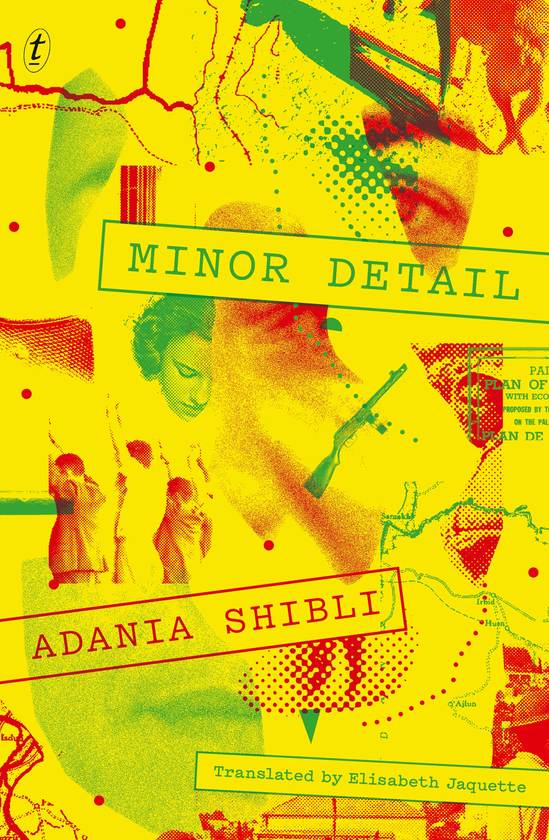


She registers the changes in her emotional state, from fear to anxiety to agitation, to loneliness, to horror. While she is as meticulous as the previous, third-person narrator in recording sensory detail, this speaker additionally gives us a clear view of her internal life. The narrator in the second half of the novel is a woman living in the West Bank in 2004.

The closest we come to psychology is the commander’s reaction to an infected insect bite on his leg that produces a revolting smell, for which he blames the girl. Sensory detail endows the passage with intense reality, and, although very short, this section has the feeling of an unbearable, interminable chronicle, paratactic, stripped of emotional content. Perception is at once intensely localized and depersonalized, giving us the sense that we are observing the action askance. Smells and sounds penetrate or invade ears and noses. Darkness has a solid presence, moving in and out of spaces. Shibli pays as much attention to the light illuminating indentations in the sand and the rotation of the sun and stars as to the movement of the soldiers around the camp, as to the soap suds falling from the girl’s body or the lieutenant’s face as he shaves. The entire passage is rendered in meticulous, traumatic detail. An unnamed lieutenant is our protagonist, responsible for killing two Bedouins and capturing a third, a girl of ambiguous age, whom he and his subordinates rape and subsequently kill. Minor Detail opens with the bleak account of an Israeli military outpost in the Negev in 1949 as the nascent Israeli state annexes more territory in the south. While the novel’s two brief parts, set fifty-five years apart, seem as though they will speak to each other across the gulf of time in a way that provides resolution, by the final page the reader has in their hands only a repetition of violence for which it is clear no narrative will provide consolation. Footnote 2 Adania Shibli’s recent novel Minor Detail shares something of Kafka’s parabolic strangeness-the brevity, the nameless characters, the initial suggestion of allegory, and the subsequent refusal to behave like one the air of nihilism. In his essay on Franz Kafka, Walter Benjamin notes the double meaning of the word “unfolding”: “A bud unfolds into a blossom, but the boat which one teaches children to make by folding paper unfolds into a flat sheet of paper.” Footnote 1 Ordinary parables unfold in the second sense, where “it is the reader’s pleasure to smooth it out so that he has the meaning on the palm of his hand,” but Kafka’s parables unfold like buds into blossoms: multiplying in complications, more like poetry than allegory.


 0 kommentar(er)
0 kommentar(er)
